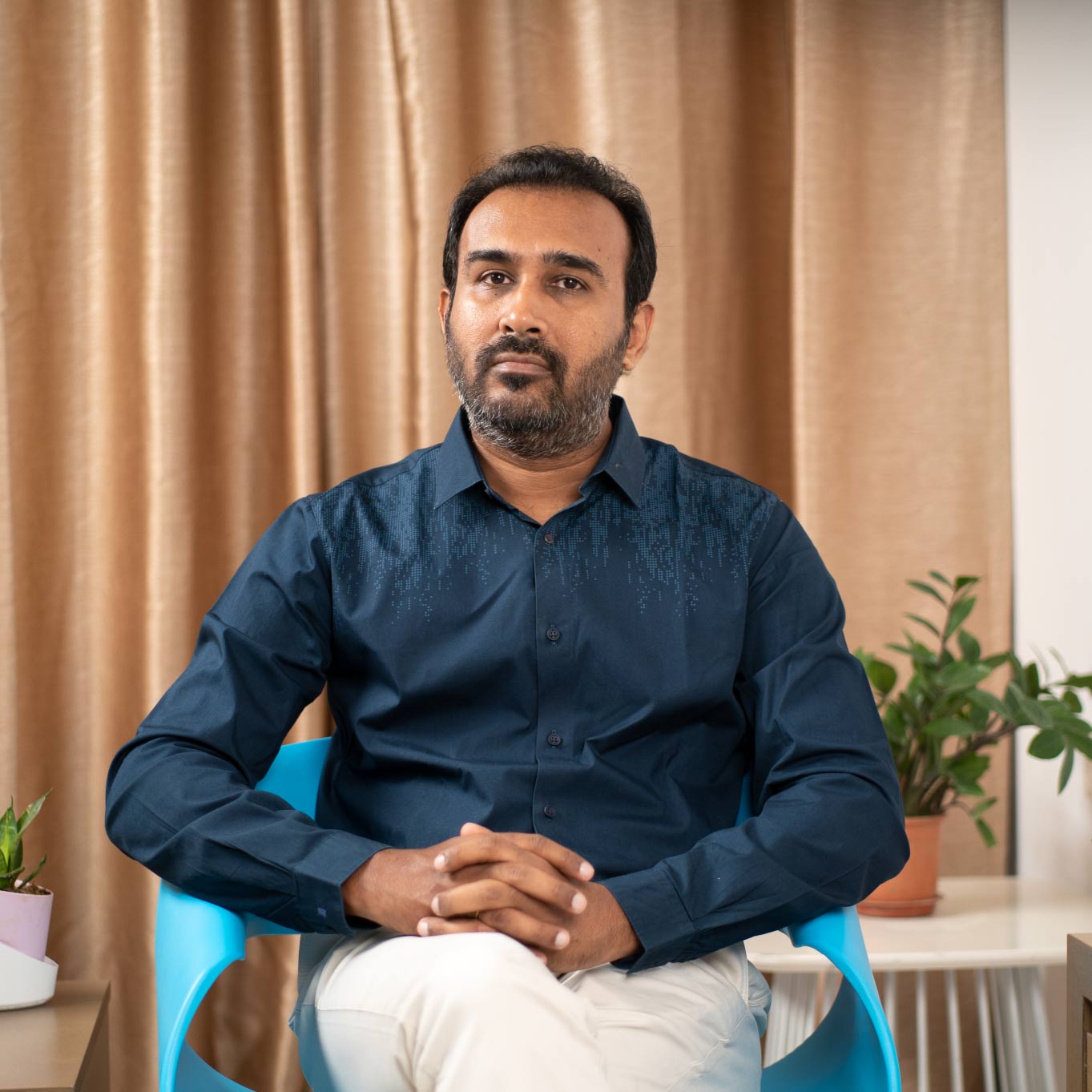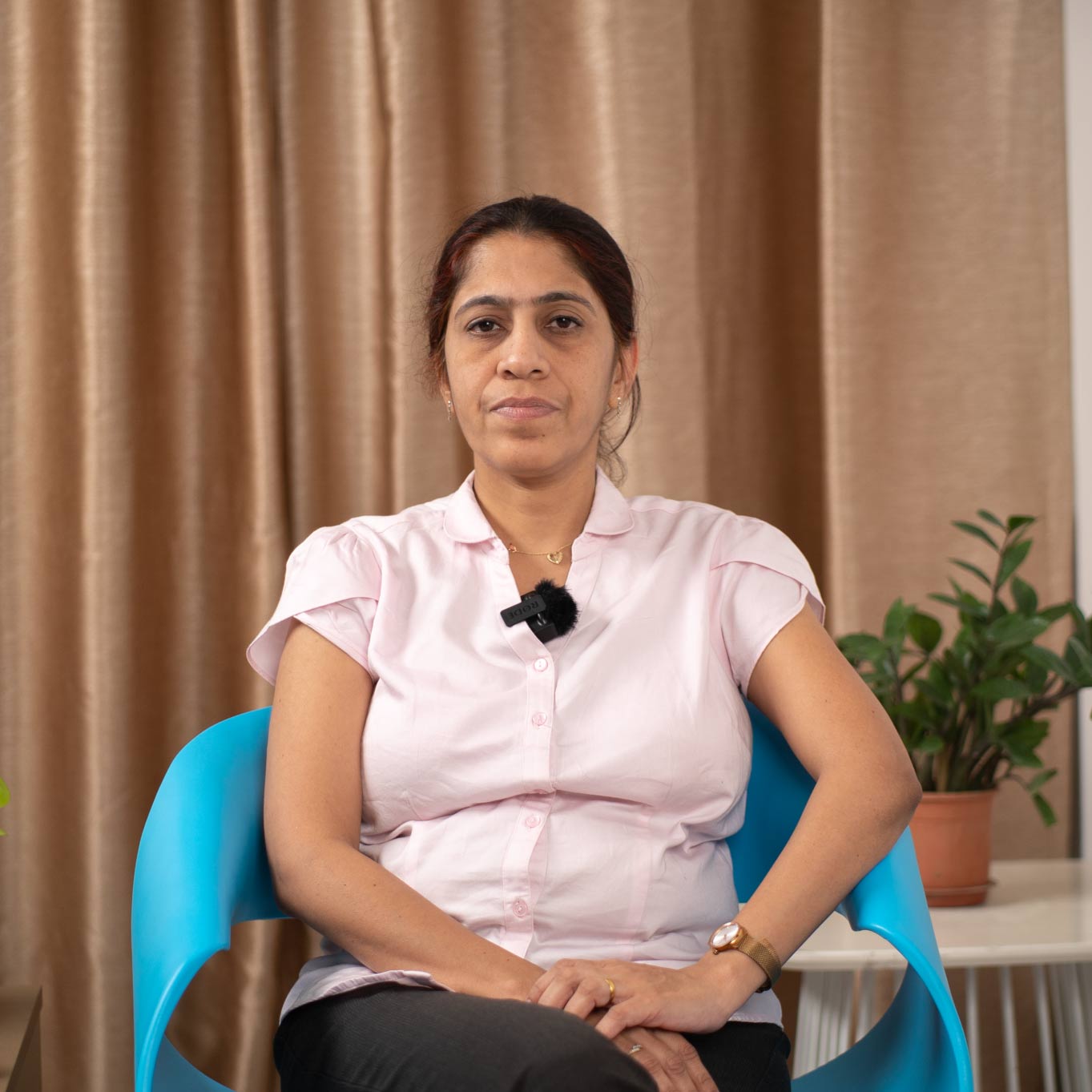Therapist for Chronic Pain in Bangalore
Why does one need a therapist for chronic pain?
One may need a therapist for chronic pain to address the psychosocial dimensions of pain. Therapists explore the narrative of pain, emphasizing the mind-body connection and fostering self-compassion. By promoting a growth mindset, therapists assist individuals in reinterpreting pain signals and cultivating adaptability. Through mindfulness and cognitive strategies, patients learn to coexist with discomfort, transforming their perception of pain from an adversary to a guide for personal growth. This nuanced therapeutic approach empowers patients to redefine their relationship with pain, fostering a more constructive and optimistic perspective.
How can a therapist in Bangalore help with chronic pain?
Therapists in Bangalore employ comprehensive assessments, combining medical history, diagnostic tests, and collaborative discussions to prevent misdiagnosis in chronic pain. They prioritize a multidisciplinary approach, involving specialists when necessary, and continually reassess patients to refine treatment plans. Utilizing evidence-based practices, therapists stay informed about emerging research, ensuring accurate diagnoses and tailoring treatments to individual needs. Open communication with patients fosters trust, allowing for adjustments based on evolving symptoms, ultimately enhancing the precision of chronic pain management strategies.
Treatments offered by a therapist for chronic pain in Bangalore?
Therapists offer various treatments for chronic pain, focusing on the psychosocial aspects. Narrative therapy helps reshape the patient’s relationship with pain by exploring personal stories. Cognitive-behavioral therapy (CBT) targets negative thought patterns associated with pain. Mindfulness techniques encourage present-moment awareness, reducing distress. Additionally, psychodynamic approaches delve into unconscious influences affecting pain manifestation. These therapies aim to enhance coping mechanisms, promote self-compassion, and improve the overall well-being of individuals experiencing chronic pain.
Treatment and Rehab centers in Bangalore for chronic pain
We, at Cadabams, a prominent mental health institution in Bangalore, stand out as a leading treatment and rehab center for chronic pain. Our specialized programs integrate advanced medical interventions with compassionate rehabilitation strategies. Committed to innovative care and a patient-centric ethos, we address both the physical and psychological dimensions of chronic pain. Through a comprehensive approach, we guide individuals towards holistic recovery and an improved quality of life in their battle against chronic pain.
How to find the best therapist for chronic pain in Bangalore?
- Medical Referrals: Start by consulting your primary care physician or any specialists you’re currently seeing for your chronic pain. They can offer valuable recommendations and referrals to reputable therapists.
- Specialized Pain Clinics: Explore specialized pain clinics and rehabilitation centers in Bangalore. These facilities often house multidisciplinary teams, including physiotherapists, psychologists, and pain management specialists.
- Online Directories: Utilize online directories that list healthcare professionals in Bangalore. Websites like Practo, Lybrate, or local healthcare directories provide information about therapists, their specialties, and patient reviews.
- Professional Associations: Check with professional associations related to pain management and therapy. In Bangalore, associations like the Indian Association for Musculoskeletal Medicine (IAMM) may have directories or recommendations.
- Hospital Affiliations: Research therapists affiliated with reputable hospitals in Bangalore. Hospitals often have stringent criteria for practitioners, ensuring a certain level of expertise and professionalism.
- Consultation and Interview: Once you have a shortlist, schedule consultations with potential therapists. Discuss your chronic pain condition, inquire about their approach to therapy, and assess their communication style to ensure compatibility.
- Credentials and Experience: Verify the therapist’s credentials and experience in treating chronic pain. Look for specialized training, certifications, or additional qualifications in pain management or relevant fields.
- Patient Reviews: Read patient reviews and testimonials. Real-life experiences can provide insights into a therapist’s effectiveness, empathy, and overall patient satisfaction.
- Holistic Approach: Consider therapists who adopt a holistic approach to chronic pain management. This may involve a combination of physical therapy, cognitive-behavioral therapy, and other complementary modalities.
- Accessibility: Assess the location and accessibility of the therapist’s clinic. Choosing a location that is convenient for you can facilitate regular sessions, contributing to the effectiveness of the therapy.
- Insurance Coverage: Check if the therapist accepts health insurance. Understanding the financial aspect and potential reimbursement can be crucial for long-term therapy.
Why Cadabams?
Cadabams therapists employ a holistic approach, integrating evidence-based psychological techniques with personalized strategies to address the complex emotional and social aspects of chronic pain, empowering individuals and their families to manage pain effectively and enhance their quality of life.
FAQs
1. What to expect from my first session with a therapist for chronic pain?
Expect an exploration of your pain journey, delving into its emotional and physical aspects.Your therapist may introduce coping strategies tailored to your unique pain experience.Art therapy or guided imagery might be used to uncover deeper emotions associated with chronic pain.The session may include education on the mind-body connection and its impact on pain perception.A collaborative goal-setting discussion may take place to shape the therapeutic journey ahead.Your therapist may introduce relaxation techniques to manage immediate distress during the session.
2. When is the right time to see a therapist for chronic pain?
Seek a therapist if chronic pain disrupts your daily life, affecting your emotional well-being. Consider therapy when pain hinders relationships or leads to isolation, impacting overall quality of life.The right time is when pain becomes a persistent burden, affecting your mental health and resilience.Consult a therapist if your pain experiences trigger anxiety, depression, or other emotional challenges.Therapy is beneficial when you sense a need for coping strategies beyond medical interventions.If pain interferes with your ability to function or engage in activities, it’s an opportune time to seek therapy.
3. How effective is it to consult a therapist for chronic pain?
Consulting a therapist enhances your ability to manage and cope with the psychological aspects of pain.Therapists provide valuable tools, such as mindfulness and cognitive-behavioral strategies, for pain control.Effective therapy can break the cycle of fear and anxiety associated with chronic pain.Therapists offer a holistic approach, addressing the emotional, social, and physical dimensions of pain.By understanding the psychological impact of pain, therapy contributes to improved overall well-being.The effectiveness lies in gaining coping skills, resilience, and a positive mindset in the face of chronic pain challenges.
4. How much does a therapist consultation cost in Bangalore?
At Cadabams Hospitals, a therapy consultation for chronic pain currently costs ₹1000. However, prices may vary depending on the specific services required.
5. Where can I find a therapist in Bangalore?
- Explore local mental health directories or online platforms like Practo for therapist listings in Bangalore.
- Consider seeking recommendations from your primary care physician or local healthcare professionals.
- Local mental health organizations and support groups may provide valuable referrals to reputable therapists.
- Check with hospitals or wellness centers in Bangalore that may have a network of experienced therapists.
- Utilize online reviews and testimonials to gauge the reputation and effectiveness of therapists in the area.
- Networking with friends, colleagues, or community members may uncover hidden gems in the field of chronic pain therapy.
6. How do I choose a therapist in Bangalore?
- Prioritize therapists with specialized experience in chronic pain management and relevant therapeutic approaches.
- Consider their approach, whether it aligns with your preferences, be it cognitive-behavioral, mindfulness-based, or integrative.
- Check for any additional certifications or training specific to chronic pain in the therapist’s background.
- Assess the therapist’s communication style and ensure it resonates with your comfort level.
- Opt for therapists with a track record of positive patient outcomes and satisfaction.
- Proximity and ease of access to the therapist’s location should also be a practical consideration in your decision-making process.
7. What mental health conditions can be treated by a therapist for chronic pain?
There are various mental health conditions that can get triggered as a result of having chronic pain. This can include anxiety, depression, or other mental health issues. Chronic pain can also increase a patient’s risk of suicide or substance abuse. All these issues can be addressed by a therapist which can make the condition of chronic pain more manageable for the patient.
8. What therapy approaches can a therapist use for chronic pain treatment?
Cognitive Behavioural Therapy (CBT) can help patients with chronic pain restructure their negative, catastrophic thoughts regarding pain into more realistic ones which can help them manage their pain better. Acceptance and Commitment Therapy (ACT) is another effective approach that can help patients accept their negative internal sensations thereby changing the patient’s experience of pain.
9. What role does a therapist play in treating chronic pain?
Therapists can help a patient with chronic pain explore and reframe the thoughts, feelings, and behaviours that are associated with their experience of chronic pain. A therapist can equip the patient with coping skills that can help them accept and reduce the intensity of pain.
10. How does a therapist help reduce chronic pain’s severity?
Managing one’s emotions can have a direct impact on the severity of chronic pain. Life stressors can also contribute to one’s chronic pain. Moreover, a therapist can help manage stress as well as help manage emotions by teaching techniques such as relaxation techniques, mindfulness, acceptance of chronic pain, etc. that can reduce the pain’s intensity. Also, for some patients, the pain itself can have a psychological origin which when addressed by a therapist can reduce it effectively.




































